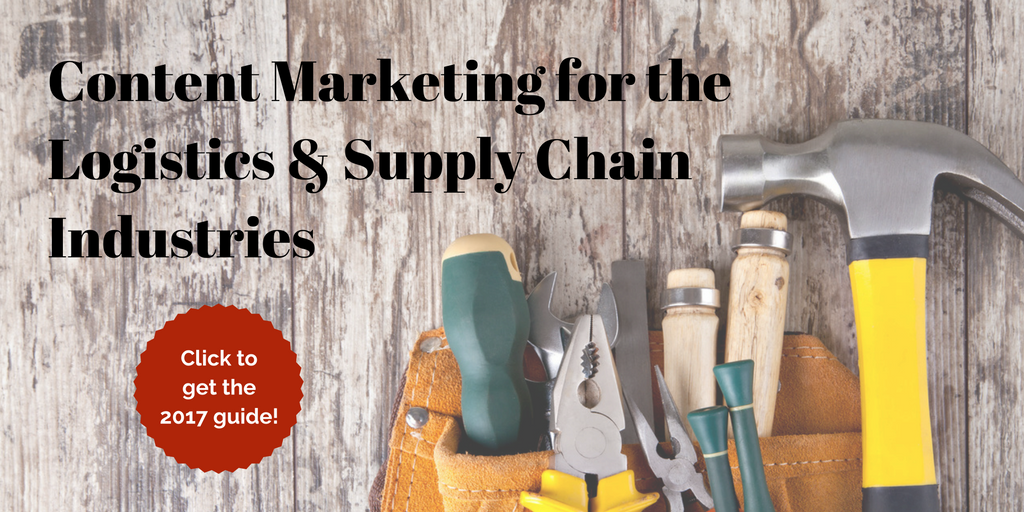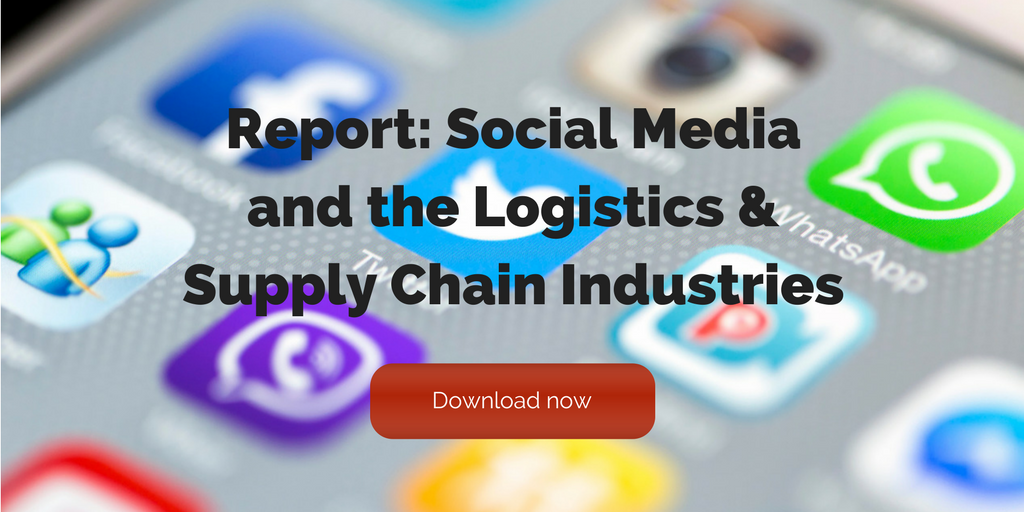
by Jennifer Hart Yim | Jul 30, 2019 | Blog, Content Marketing, Leadership, Marketing, Supply Chain
Supply Chain Management can boost productivity – and alleviate issues – for companies as they scale.
This guest post comes to us from Argentus Supply Chain Recruiting, a boutique recruitment firm specializing in Supply Chain Management and Procurement.
Awhile ago, we blogged about how more Startups are looking to Supply Chain Management to boost their productivity as they scale. Procurement – the effective purchasing of raw materials, back-office goods and professional services – as well as Logistics – the orchestration of the movement of those goods – might not seem to be as important as sales, marketing, R&D or finance at first blush. But failure to account for these factors can be a major bottleneck to growth, and many a startup has failed because of Supply Chain issues.
Supply Chain Management is an important factor for fast-growing hardware manufacturing companies, whether they’re producing goods overseas or at home. But it’s important in food manufacturing, consumer goods, Pharma, and Cannabis as well, as well as any industry with direct B2B sales. In fact, we recently brought on a new Cannabis client who’s scaling up a strategic sourcing operation in all of their Procurement, so that all their spend is captured and accounted for as they grow, rather than after. Rather than taming out-of-control spend later, they’re maximizing profitability by being strategic about the company-wide spend now, by hiring a team of Procurement category managers.
The most successful startups grow quickly by relentlessly focusing on the consumer – giving them a better product, or a better customer experience – but customer service is dead on arrival without an effective Supply Chain. Any growing company needs people to forecast demand, produce or source the goods to meet that demand, and ship it quickly and reliably to consumers, while only holding as much inventory as absolutely necessary.
As a founder or senior leader in a growing company, you might think that you have the expertise to “figure it out” on the fly, because how hard can it be? But trust us, if you don’t have Supply Chain experience, you can’t. Developing a product line and business model is hard. Getting it funded is harder. But as a founder, you don’t know true pain until you’ve been saddled with massive inventory because you failed to plan, or until you’ve seen an entire shipment waiting at port for customs clearance three weeks before your launch because you don’t have someone on staff who has the experience to get the paperwork in order before you need to.
Avoid failure.
That’s how Supply Chain has always advocated for itself, and you may have even heard about these considerations before. Get your Supply Chain in order, and you might avoid pain, but you’ll also experience innovation and opportunities to improve your customer experience in ways you never thought were possible. It can also reinforce your core company values and mission, and pass it on to customers in ways you haven’t considered.
As Dave Evans recently talked about in Bloomberg, setting strong values early is the key to sustainable growth at a startup. Most entrepreneurs get that. But what they don’t always get is the importance of making sure that these values extend into your Supply Chain. Founders need Supply Chain experts who can forge close relationships with suppliers, and find manufacturing partners who can provide opportunities to improve the brand.
Too many founders treat Supply Chain like a transactional necessity: “okay, where are we going to source product from fastest and cheapest?” But Evans talks about how founders can actually use Supply Chain Management as an opportunity to improve and build their brand. He uses the example of Everlane, which has built a successful fashion brand out of radical supplier transparency – making it plain to customers exactly where their products come from, and breaking down all the costs associated with bringing it to market.
So where do you start?
Different areas matter more for different industries, and different levels of maturity. A seed-stage startup might need to set an overall direction for logistics and distribution (i.e. what sort of 3rd party logistics solution will you look to leverage?), whereas a scaling business might be able to leverage strong Procurement to extract additional value from supplier relationships – as with the Cannabis company we mentioned above.
Do you want your Supply Chain to be fast, cheap, or flexible? Skilled supply chain professionals can usually help you excel at two of those. The best in the business can get you all three. But if you don’t have any of that expertise, you’ll get zero.
Areas that startups need:
- Logistics and Distribution Strategy
- Demand Planning
- Production Planning
- Lead Time Management
- Inventory Planning
- Supplier Relationship Management
- Strategic Sourcing/Shared Services Procurement (growth stage)
Today’s top Supply Chain Management professionals can bring all these considerations to bear. One other thing to consider: manpower expenses are one of the highest costs in scaling a business, and you don’t want to take on extra full-time staff if you don’t have to. So one thing companies will do is hire a seasoned expert who has developed and implemented Supply Chain strategies at scaling companies before on a contract basis – say 6 or 12 months – to implement the process and strategy, and then move on to another contract. You will likely have to pay a bit more per-hour, but it can be a tremendously flexible and high-value option, especially because some of the best in the business are now working on contracts for growing companies.
Any way you go about it, failing to plan a Supply Chain can quickly sink a growing company – and developing one that excels will make a growing company soar.
If you fail to plan, you plan to fail. Having Supply Chain Management professionals in the room is some of the best business planning possible in 2019. That’s why they’re a founder’s secret weapon.
Related posts:


by Jennifer Hart Yim | Jun 26, 2019 | Blog, Content Marketing, Manufacturing & Distribution, Marketing, Supply Chain, Talent
The global Supply chain provides goods faster and more efficiently than ever before. Here are the top supply chain skills for one of the most important industries: manufacturing.
Highlights:
- Sitting at the intersection of raw materials acquisition and distribution of finished goods, manufacturing is one of the most crucial functions within the global Supply Chain.
- If you’re in Manufacturing purchasing, think closely about what sort of buying you’re doing, how to diversify that experience, and deepen your understanding of the market you’re buying in – there are big dividends for those who do.
- Boosting your skills with continuous improvement, just-in-time manufacturing, and Six Sigma are some of the best ways to distinguish yourself in the field.
This guest post comes to us from Argentus Supply Chain Recruiting, a boutique recruitment firm specializing in Supply Chain Management and Procurement.
The global Supply Chain provides goods to consumers faster and more efficiently than ever before, and there’s a staggering diversity of Supply Chain professionals making that happen. Today, we want to take a moment to highlight the skills profile for one of Supply Chain’s most important industries – which also happens to contain one of its hottest job markets: Manufacturing.
Sitting at the intersection of raw materials acquisition and distribution of finished goods, manufacturing is one of the most crucial functions within the global Supply Chain. Despite perennial political statements around the “demise of manufacturing,” the sector is quite strong in Canada, especially in the Supply Chain, Purchasing and Logistics functions.
At Argentus, we’ve always worked in manufacturing recruitment, but we’ve been making a big push into this area recently, including in the areas of Aerospace, Consumer Electronics, Automotive, Electrical Manufacturing, Manufacturing Automation, and Food Production. We’ve seen what’s happening in the industry firsthand: dynamic companies are redefining the space, using a strong Supply Chain to scale up quickly while controlling costs.
In the past few months, we’ve helped a Food Production company with an innovative approach to product development scale up their Procurement and Plant bench strength. We’ve bolstered a fast-growing Aerospace company looking for highly-technical technical buyers to boost their new product introductions. We’ve helped a startup manufacturer seeking their first Supply Chain Manager to implement a sourcing, distribution and logistics strategy for the first time.
And these are just a few. These experiences, combined with our intelligence in the marketplace, have given us a good understanding of the hottest skills in Manufacturing Supply Chain jobs in the market as of right now.
A couple caveats: this reflects manufacturing positions at the corporate Supply Chain Management level and not the shop floor / distribution centre level. It also isn’t exhaustive of all required skills, just those that we’ve noticed being in high demand recently.
So without further ado, here are some of the hottest skills:
“Direct” Purchasing: Raw Materials, Packaging, Food
Buying raw materials has always been a vital part of manufacturing – after all, what can you produce without raw materials? – but clients’ demand for specific raw materials purchasing experience is rising. Whether it’s food ingredients or building materials, companies are looking for individuals who can think strategically about raw materials to find better suppliers and processes. For certain raw materials, they want individuals who have a deep understanding of particular commodities markets. If you’re in Manufacturing purchasing, think closely about what sort of buying you’re doing, how to diversify that experience, and deepen your understanding of the market you’re buying in – there are big dividends for those who do.
ERP Skills:
It probably goes without saying at this point, but a high degree of competency with ERP systems is a must-have in today’s manufacturing Supply Chain. Many of the vital Supply Chain planning functions for most manufacturing processes (production planning, supply network planning, etc.) run through ERP systems like SAP, Oracle or Microsoft NAV, so it’s no wonder that most front line workers distinguish themselves with excellent command of these systems.
Buying “build to spec” for highly engineered components:
If you’re working in a highly technical subsection of manufacturing (electrical, aerospace, etc.), more companies are seeking Procurement people with the technical background to source components at a very early stage of new product development. We’ve worked on a number of searches recently where our client is looking for new product buyers who can source based on technical specs, as opposed to drawings. People with mechanical engineering backgrounds are excellent for these roles. But even if you don’t have that background, an understanding of detailed technical specifications can give your career a boost over more transactional buyers.
Continuous improvement:
Lean manufacturing, Kaizen and continuous improvement are decades old at this point, but manufacturers who fail to implement these models are still falling behind in the marketplace. The ability to constantly improve manufacturing processes is still one of the chief differentiators for Supply Chains, and companies are constantly on the lookout for people who can help transform and improve their operations. Boosting your skills with continuous improvement, just-in-time manufacturing, and Six Sigma are some of the best ways to distinguish yourself in the field.
So that’s some perspective from the front lines of Supply Chain recruitment in manufacturing. But what are you seeing in the marketplace, either as a Supply Chain professional or hiring manager?
Related posts:


by Jennifer Hart Yim | Jan 30, 2019 | Blog, Content Marketing, Current Events, Logistics, Marketing, Supply Chain, Talent
Supply Chain skills have never been in more demand and the work has never been more interesting. Here’s a look at the best degree for supply chain management.
Highlights:
- Today’s supply chain professionals need to be well-versed in data analysis, presentation skills, negotiation skills, project management skills.
- Individual career objectives and educational options can help determine the best degree.
This guest post comes to us from Argentus Supply Chain Recruiting, a boutique recruitment firm specializing in Supply Chain Management and Procurement.
Supply Chain Management was seen as a back-office profession. People tended to rise from shop floors and warehouses into management roles and eventually – for the most high-performing individuals – Senior Director and C-Suite positions. It’s always been one of those fields that people “fall into.” Once they found themselves in a Supply Chain or Procurement job, people tended to look around and see how important it was to the business. They’d experience the fast pace, see the immense ten-dimensional puzzle involved in getting a product to market, the global scope, and be hooked.
It used to be a truism that no teenager decides that they want to get into Supply Chain, even those who had their sights set on the corporate world and not other paths like medicine or law. Supply Chain used to be the kid brother to other, more “glamorous” corporate functions like marketing and finance: misunderstood, transactional, and frankly thankless work.
No longer.
In 2018, Supply Chain Management is a key market differentiator for companies in industries as diverse as consumer goods, retail, pharmaceutical, manufacturing, you name it. Supply Chain skills have never been in more demand in the corporate word, and the work has never been more interesting. Many of the top companies in the world are waging a constant war for Supply Chain talent, with baby boomers retiring and strong economic growth driving demand. Young people are starting to wake up to the huge amount of opportunity in the field.
[bctt tweet=”Today’s Supply Chain professionals need to be well-versed in data analysis, presentation skills, negotiation skills, project management skills, as well as the know-it-when-you-see it overall skill of “business acumen.”” username=”Fronetics”]
At the same time, companies are increasing educational requirements, which makes sense: today’s Supply Chain professionals need to be well-versed in data analysis, presentation skills, negotiation skills, project management skills, as well as the know-it-when-you-see it overall skill of “business acumen.” In our recruitment practice, we’re noticing that more clients are requiring a university degree as a hard-and-fast requirement for jobs.
The requirement often ends there. “A degree.” Which means that there are lots of educational avenues aspiring Supply Chain professionals can take to set themselves apart from the competition. But it can be daunting: should you do an Engineering degree with a focus on Industrial Engineering? Should you do a business degree? A liberal arts degree and then an MBA? Or should you forgo a formal degree and pursue certifications like CSCMP and APICS from industry associations?
It depends. It’s hard to arrive at a definitive answer. Why is that?
- Individual career objectives vary. For example, someone who wants to pursue a career in sourcing and Procurement will probably be better served by a business degree than an engineering degree. And someone who’s interested in Production Planning, Supply Planning, and/or Demand Planning is probably best served by a STEM degree that features a lot of quantitative analysis.
- Educational options vary. More schools are offering Supply Chain specialties as part of MBA programs, as well as at the undergrad and college levels. More traditional programs (engineering, business, etc.) are taking steps to prepare students for careers in Supply Chain Management. But options for programs vary based on geography and the grades that any one candidate brings to the table.
That said, we still think it’s worthwhile to give some tips for people exploring their education options in the field. So we put the question to our network of established Supply Chain professionals to see what they had to say.
Here are some of the more insightful responses:
“Engineering degree with focus in database structures and statistics can equip one with the required skills for this domain. Presently all SCM jobs require one to be able to work with ERP systems so it is nice to have understanding about the underlying concepts.”
“The easiest that i can think of is Industrial Engineering which is a mix of Engineering/Mgt/commercial/statistics subjects. My degree in IE was a sound base to launch me into a SC/Logistics career. Then top it off with a certification after gaining some work experience. Certifications without some work exposure may turn to be useless. Certifications should be a source of validation of what you know in the discipline. I do hear there are schools/community colleges these days offering SC/Logistics as a degree. In all, any course that exposes and builds a person’s critical thinking skills is ok to get into supply chain.”
“Best degree would be to start working in a warehouse. Try some scheduling work also if you can. For all the value that a degree gives you, nothing beats knowing how goods flow and how truck drivers get stuff from point A to B. Do this for a year, then worry about which degree to get.”
“1) Chemical/Industrial/Mechanical Engineering 2) Economics 3) Business/Commerce with a major in finance 4) a solid liberal arts education from a university that will propel you into a top business school.”
“Engineering or Business provide a great foundation for logical, innovative and strategic thinking.”
Hopefully the above comments can help offer some guidance to anyone who’s interested in embarking on Supply Chain Management as a career path. There are lots of paths to go down. But whether you choose the university, college or certifications route, it’s pretty undeniable that more education is never a bad thing.
Related posts:


by Fronetics | Dec 19, 2018 | Blog, Content Marketing, Leadership, Logistics, Marketing, Supply Chain
Our most-viewed leadership posts from this year discuss the characteristics of effective leadership, point out industry trends, and provide resources for leadership growth.
Our top leadership posts from 2018 examine what makes a good leader, as well as what makes a bad leader, and the ramifications of each. They also look at some executive thought leadership about industry trends, notably corporate social responsibility, and talk about how supply chain leaders can make use of social media.
Here are our top 5 leadership posts from 2018.
Fronetics’ top 5 leadership posts of 2018
1. Why CSR: Four Benefits of Corporate Social Responsibility
Corporate social responsibility is a pretty broad term to describe how a company is working to improve its community. And 55% of consumers are willing to pay more for products from socially responsible companies. What does that mean for you? It means that corporate social responsibility is as good for your community as it is for your own brand. Here are four major benefits of corporate social responsibility. Read more.
[bctt tweet=”55% of consumers are willing to pay more for products from socially responsible companies. What does that mean for you? It means that corporate social responsibility is as good for your community as it is for your own brand. ” username=”Fronetics”]
2. 5 Must-Read Books for Supply Chain Leaders
Great leaders embody the ability to inspire and empower their teams to succeed. Here are five books that we recommend reading to keep getting the job done: empowering your team, learning about industry trends, updating your management practices, and other key insights. Read more.
3. 5 Social Media Tips for Supply Chain Executives
Supply Chain Management and its related functions (Procurement, Planning, Vendor Management, Logistics, Operations) are on the opposite end of the spectrum from functions like sales and marketing – areas where your brand is everything. But from our perspective, there are still lots of different benefits that Supply Chain and Procurement executives can gain from building their social media brands. Read more.
4. What’s the Cost of Bad Leadership in Procurement?
Everyone knows that a bad hire can be really costly to a business. When you account for hiring, training, and onboarding costs, plus the opportunity cost of not hiring a successful employee – not to mention the impact on workplace culture – hiring the wrong person can set a company back tens of thousands of dollars. Read more.
5. Supply Chain Leaders: Do These 4 Things with Your Social Media
We’ve written many times before about the importance of supply chain leaders being on social media as the face of their brands. Social media presents a huge opportunity for executives to use their relative industry celebrity to be an extension of their organizations. So you are ready to commit to a more active social media presence (or you’re going to be ghost-posting for your executive). Where do you begin? We’ve come up with 4 tips for supply chain leaders to making the most of their presence on social media. Read more.
Related posts:


by Jennifer Hart Yim | Nov 28, 2018 | Blog, Content Marketing, Logistics, Marketing, Strategy, Supply Chain, Talent
Great people don’t always focus on expressing their superpowers at work out of a fear of limiting their scope. Here’s how employers can identify and coach employees to work to their fullest potential.
This guest post comes to us from Argentus Supply Chain Recruiting, a boutique recruitment firm specializing in Supply Chain Management and Procurement.
In people management and hiring, we might assume that we’re emphasizing what our employees are best at. “Play to your strengths” is one of the biggest truisms of business, and life in general. If the people we’re managing – or hiring – are talented, we might assume that they’re working to their full potential in their roles. The cream rises to the top in any organization, but how often are we failing to hire and manage talented people based on what they’re truly best at?
A great new article from executive coach Whitney Johnson in the Harvard Business Review details how employers can help their teams play to their strengths. More than strengths, actually: Johnson offers strategies for identifying and coaching employees based on their superpowers – the things that come most easily, the things that those employees are not always willing to boast about.
[bctt tweet=”People sometimes undervalue their own superpowers because the tasks associated with them feel “too easy” compared to hard-won skills. But let people focus on their superpowers and real opportunities for innovation start to spring forth.” username=”Fronetics”]
As Johnson puts it, people sometimes undervalue their own superpowers because the tasks associated with them feel “too easy” compared to hard-won skills. But let people focus on their superpowers and real opportunities for innovation start to spring forth.
Often you can spot superpowers in the wild; some people are such high performers that it’s obvious what they’re best at, and they’ve found their way into a role that utilizes those skills. But the HBR article makes the point that great people don’t always focus on expressing their superpowers at work out of a fear of limiting their scope. It’s rare that you find someone who’ll put what they’re truly a genius at on their resume – either out of a desire not to boast, or to present a more balanced profile.
The article identifies some strategies for managers to identify their team’s “superpowers.” They encourage managers to ask their employees a few key questions:
- What exasperates you? Ask people if there’s anything in their job that frustrates them when other people don’t understand it easily.
- What compliments do you dismiss? The article makes a great point that people tend to downplay the things that they’re best at – the things that come most naturally to them – out of humility or because they feel “easy.” If someone regularly dismisses compliments around a certain task or deliverable, that’s a sign that thing might be their superpower.
- What do you think about when you have nothing to think about? In downtime, our brains regularly come back to the things that stimulate us most – the things our minds gnaw at that we can’t let go. Leaders should try to find out their employees’ fixations, because – through coaching – these can develop into passions and ultimately superpowers.
But why stop at coaching and development? We think that companies should strive to adopt this approach for hiring as well: as much as possible they should hire employees for their superpowers, rather than their ability to carry out an over-wide range of tasks.
For example, in Strategic Procurement: is someone particularly elite at communicating and building relationships? Assign them specifically to build buy-in from internal stakeholders across the business, and act as a point-person between those internal clients and the sourcing group. Leave the sourcing to those whose “superpowers” are evaluating the supplier marketplace, or negotiation, rather than structuring your department around a bunch of generalists.
Does someone have a deep understanding of a particular category, for example marketing spend, perhaps from working on the other side of the fence? Hire them for that category. These are just a few examples of how we think companies can adopt the “superheroes” approach to hiring.
Companies should tailor job descriptions towards key deliverables, and consider including the questions mentioned above in the job interview process, as a means of trying to uncover what comes easiest to job candidates – which also happens to be the areas where they’re most likely to innovate.
Budgets, organizational structure, and directives from senior leadership will often be impediments to this approach, but specialization is the name of the game in improving efficiency, which is after all what Supply Chain Management and Procurement are all about.
Related posts:











